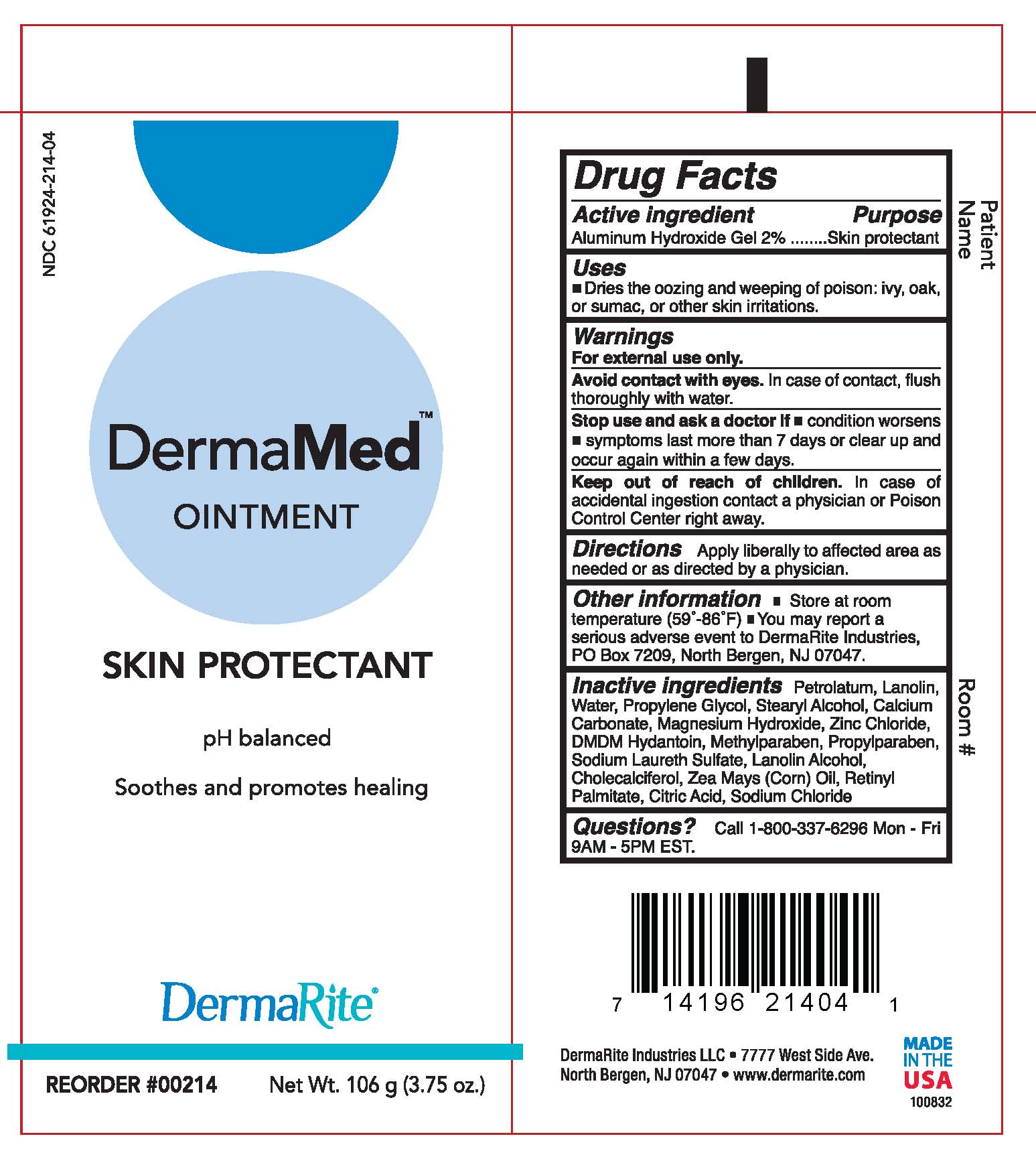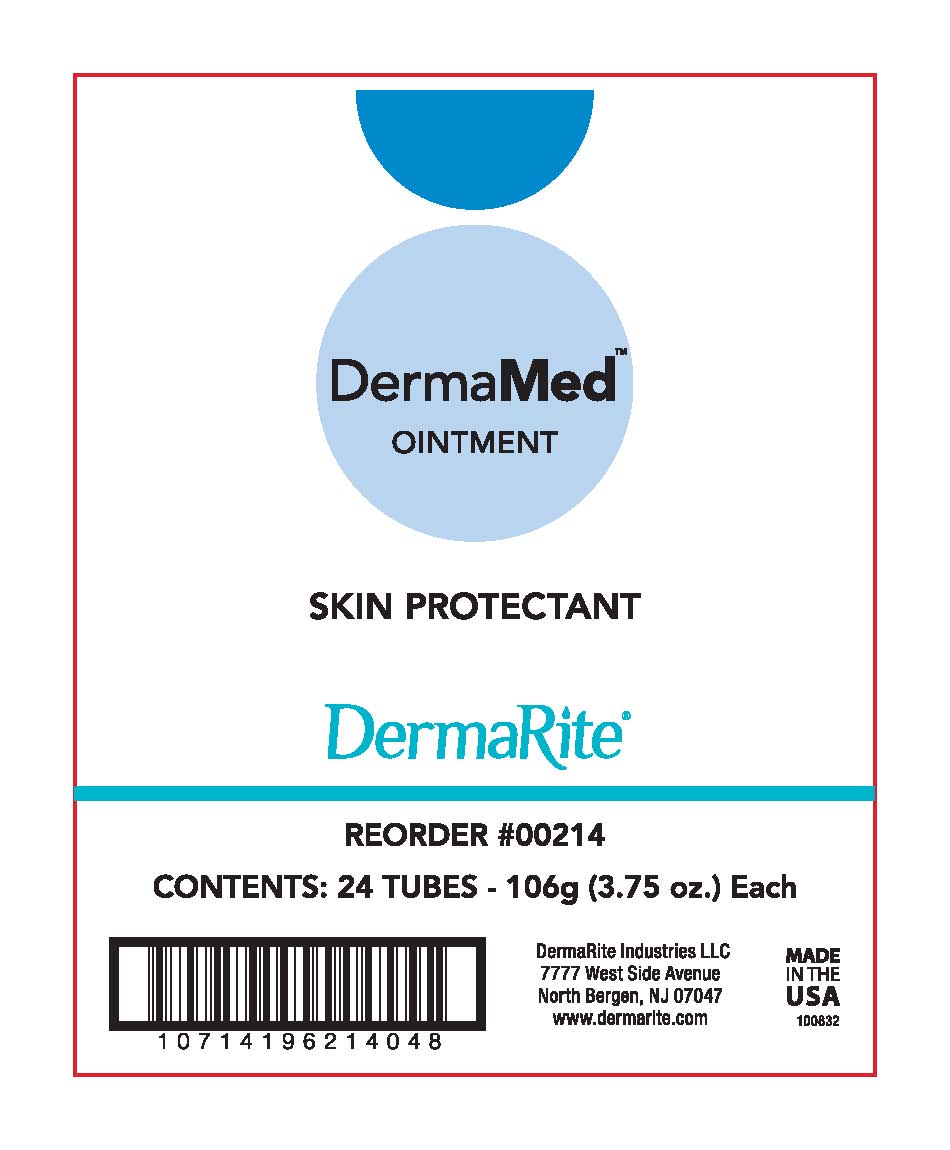Dermamed | Skin Protectant Ointment while Breastfeeding

What is Dermamed | Skin Protectant Ointment used for?
Brief: Skin protectant
Dermamed | Skin Protectant Ointment while breastfeeding safe or not? Can there be any side effects for infant while using it during breastfeeding?

Dermamed | Skin Protectant Ointment Breastfeeding Analsys
Aluminum hydroxide while Breastfeeding
SafeCAS Number: 21645-51-2
Aluminum does not concentrate into breast milk. After ingestion of antacids the Aluminum plasma levels increase from a basal-point of 7 μg/L to 55 μg/L at half-an-hour with a return to previous level 3 hours later. Although a minimal amount of Aluminum may be found in the milk, there are not shown side-effects in the infant. Mother's milk has a mean concentration of 49 μg/L of Aluminum which is much lower than the amount of 180-700 μg/L found in artificial formulas. Because of a low oral bioavailability the pass from the breast milk toward the infant's plasma is hampered, except in premature and newborn infants who may exhibit a higher intestinal absorption due to an increased permeability. Avoid chronic or excessive use. WHO Model List of Essential Medicines 2002: compatible with breastfeeding.

I am nursing mother and I have already used Dermamed | Skin Protectant Ointment, what should I do?
It is always a good idea to keep your healthcare provider or doctor informed about your drug usage during pregnancy and breastfeeding but if you have not informed your doctor about Dermamed | Skin Protectant Ointment and have used it then do not panic as Dermamed | Skin Protectant Ointment is mostly safe in breastfeeding and should not cause any harm to your baby.
I am nursing mother and my doctor has suggested me to use Dermamed | Skin Protectant Ointment, is it safe?
Definitely, Dermamed | Skin Protectant Ointment is safe in lactation for baby. No wonder your doctor has recommended it.
If I am using Dermamed | Skin Protectant Ointment, will my baby need extra monitoring?
No extra baby monitoring required while mother is using Dermamed | Skin Protectant Ointment
Who can I talk to if I have questions about usage of Dermamed | Skin Protectant Ointment in breastfeeding?
US
National Womens Health and Breastfeeding Helpline: 800-994-9662 (TDD 888-220-5446) 9 a.m. and 6 p.m. ET, Monday through Friday
UK
National Breastfeeding Helpline: 0300-100-0212 9.30am to 9.30pm, daily
Association of Breastfeeding Mothers: 0300-330-5453
La Leche League: 0345-120-2918
The Breastfeeding Network supporter line in Bengali and Sylheti: 0300-456-2421
National Childbirth Trust (NCT): 0300-330-0700
Australia
National Breastfeeding Helpline: 1800-686-268 24 hours a day, 7 days a week
Canada
Telehealth Ontario for breastfeeding: 1-866-797-0000 24 hours a day, 7 days a week
